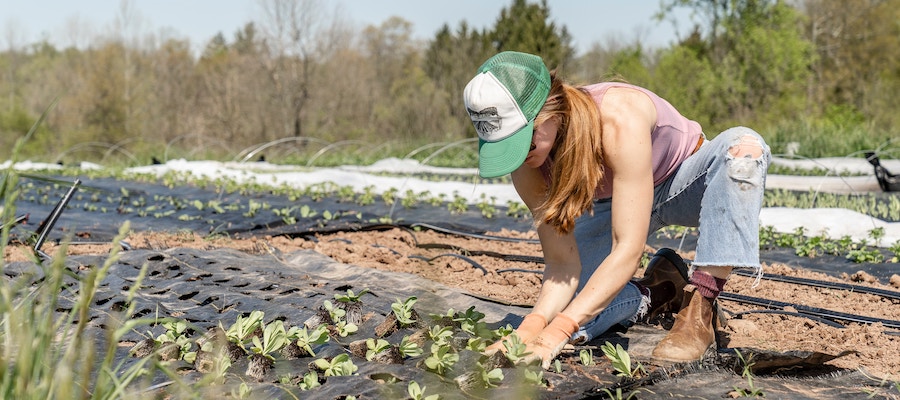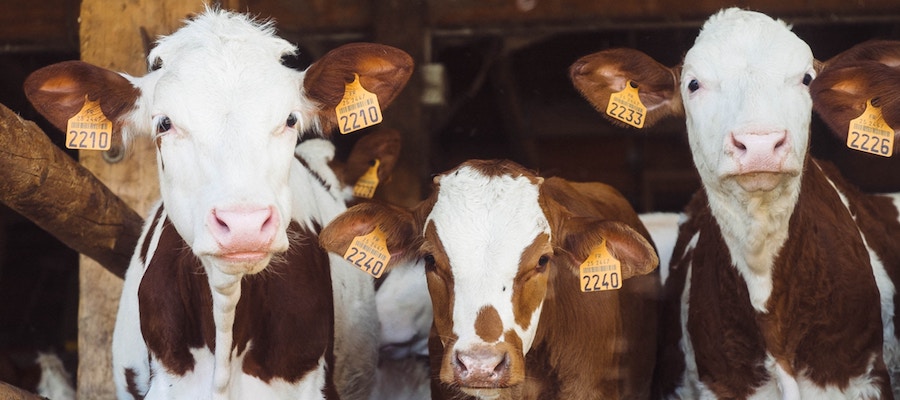
The SSA has recently attended Oxford’s two farming conferences, taking stock of what’s new for soil in the world of farming. The original Oxford Farming Conference (OFC), and the agroecology focused Oxford Real Farming Conference (ORFC) gather farmers, NGOs, policy makers, politicians and academics from across the sector, and sets the agenda for what’s to come for food and farming in the year ahead. We’ve brought together our insights from the two events below, that broadly fall into four themes.
Soil at the Oxfords
While perhaps not as explicit as at previous conferences, soil was very much on the agenda and up for discussion in Oxford. Most notable at ORFC, where a packed main hall saw passionate soil enthusiasts, farmers Iain Tolhurst and Tim Parton, discuss their unique methods for building and maintaining soil health on their farms.
While both farm regeneratively (even though Iain made it clear that he prefers to use the term ‘rejuvenate’) their approaches are different, with audience members discussing their use of machinery, herbicides and livestock on farm. Indeed, the terms organic, agroecological, regenerative and biological were often used interchangeably among farmers at ORFC, although there was an understanding that soil health is foundational to each principle, and that these approaches are ‘absolutely central to the battle against climate change’ (Lord Deben).
Although soil had no dedicated session at OFC, optimistically we can hope that this is a reflection of soils health’s status as a golden thread running through all conversations, rather than a novel topic up for separate discussion.
Government incentives and other support mechanisms
Changes to the government’s Environmental Land Management schemes (ELMs) were announced by Defra secretary Steve Barclay at OFC. These include an average 10% increase to payments, along with the introduction of 50 new actions including for soil health.
The mood on government incentives across the conferences was split, with OFC delegates supporting the incentivisation of early interventions, while speakers at ORFC denounced the administrative burden involved without sufficient compensation. Farmer Tim Parton described it an ‘injustice’ that the government is prepared to pay farmers to not grow food and export food production emissions, and highlighted that we can improve soil health and human health simultaneously, without increasing the amount of food we import.
Attitudes towards the private carbon marketplace reflected recent media apprehension at ORFC, with farmers expressing fears of “exposing themselves to massive reputational issues” (Kate Hughes, farmer, journalist and author) if they were to sell their carbon to businesses who profit from their hard work and contribute to greenwashing. Clearly apprehension around this new focus for farming remains, however the inclusion of carbon markets on a conference agenda designed for farmers does demonstrate a growing appetite for a well-regulated soil carbon marketplace.

Fairness in the supply chain
OFC launched the report ‘Is the UK supply chain broken?’ to kick-off their conference – a question which was debated across both meetings. Generally, delegates agreed that there are significant issues affecting the UK supply chain, with the financial burden falling on farmers, which ultimately limits capacity to focus on soil health.
Discussions of food price inflation, public concern around empty shelves and the recent Red Tractor controversy led back to the ever-present elephant in the room: ‘who pays for environmentally friendly farming?’. The cost-of-living crisis means that supermarkets are doing all they can do to keep costs down, however Will White, Sustainable Farming Coordinator at Sustain, pointed out that the impact of food price inflation is often used as ‘an easy out’, and in reality the price increase for consumers would be minimal if farmer incomes were increased.
Speakers from both conferences mentioned their hope, and indeed the need, for a shift in public opinion around food production. It is hoped that a deeper public understanding of where food comes from and the environmental impact of food production could be a positive force for change.
The flooded fields around Oxford were a stark reminder of the reality of climate change, and were discussed throughout the conferences. We wonder if perhaps a silver lining from this flooding and its visibility to the public might increase awareness of climate issues around soil degradation, driving the ‘mind-set shift’ which is needed to pressure government and corporates into addressing supply chain issues.
Politicians attending the conferences were sure to remind audiences that 2024 is an election year. This represents an opportunity for food and farming to be on the agenda and for the public to engage more with issues of flooding, food security and biodiversity - all which have soils at their heart.
Calls for collaboration
Any gathering of like-minded people will foster invitations to collaborate, and this year in Oxford was no different. At OFC, Steve Barclay described how he wants to build the relationship between regulators and farmers, moving from a place of suspicion to one of trust. ORFC hosted a session which discussed how to better integrate on-farm and academic research, and surmised discussions from previous conversations on how leaders from farming, NGOs, government and can and must come together to lead the development of a fair and sustainable farming system.
The ultimate goal of both farming conferences is the same – farmers want a financially and environmentally sustainable farming system, and both gatherings called for greater collaboration across industries. Perhaps it is now time for delegates from each of the Oxfords to come together to share ideas and devise ways to come together to work towards that shared goal!

As a delegate travelling to Oxford to attend ORFC for the first time, it was refreshing to be surrounded by a mood of ambition, innovation and – while sometimes muted – enthusiasm. The precedent for 2024 has been set, and we hope to see these themes of collaboration, fairness and support exercised for the ultimate benefit of improved soil health, and the multiple environmental, social and financial benefits this will bring.
By Tara Smith & Theo Heaton-Davies